| Dear Voornaam
Weve developed new guidance to clearly outline the disability and accessibility support we offer grant applicants and grant holders.
We welcome applications from researchers who are disabled or have a long-term health condition and support adjustments in the funding application process or interview for people who need them. Award holders can also request adjustments for reporting on their awards and, through our flexible working policies, access part-time working and long-term leave.
Any disclosures of disabilities or requests for adjustments are treated with confidentiality, privacy and respect. |
|
|---|
|
|---|
|
|
Funding & Research Opportunities |
|
|---|
|
|---|
| | | Applications accepted all-year round |
|
|---|
|
|---|
| | | Applications accepted all-year round |
|
|---|
|
|---|
| | | Applications accepted all-year round |
|
|---|
|
|---|
|
|
DOCTOR CHARLIE MASSIE It was with great sadness that we learned the news that Charlie Massie has died this month. Charlie was an exceptional researcher, leader and colleague with close ties to Cancer Research UK.
Charlie completed his PhD with James Brenton and his postdoc with Nitzan Rosenfeld before joining the Early Detection Programme at the Cancer Research UK Cambridge Centre as a group leader. Charlie was a founding member of the Early Cancer Institute at the University of Cambridge, which opened in 2022. His research contributed hugely to the field of early detection most prominently Charlie harnessed the power of deep molecular profiling for early diagnosis and risk stratification.
|
|
|---|
|
|---|
|
|
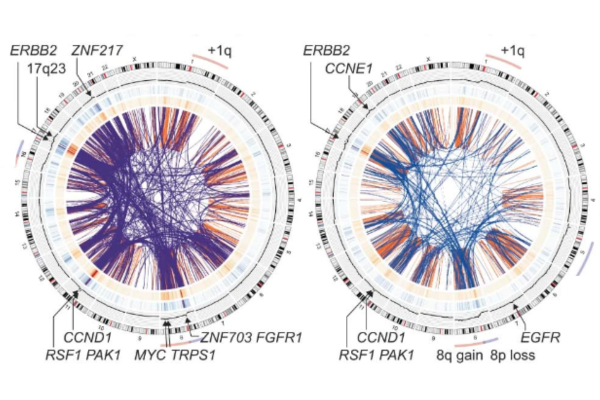 NEW IN NATURE: WHAT UNDERLIES ONCOGENE AMPLIFICATIONS IN BREAST CANCER Jake June-Koo Lee, Peter Park and colleagues have proposed a new model, termed translocation-bridge amplification, that describes how oncogenes are amplified in some breast cancer genomes and propose a role for oestrogen in driving the process.
The authors analysed 780 breast cancer genomes and observed that focal amplifications are frequently connected to each other by inter-chromosomal translocations at their boundaries. They found that oestrogen can induce double-strand DNA breaks which when repaired by translocations can initiate translocation-bridge amplification.
Peter Park is a co-investigator on the Cancer Grand Challenges SPECIFICANCER team, led by Stephen Elledge. |
|
|---|
|  ABOUT TO PUBLISH YOUR RESEARCH? KEEP US IN THE LOOP If you're preparing a Cancer Research UK-funded research paper for publication, wed love to hear about it.
You can let us know about pending publications via our manuscript notification form. All information will be treated confidentially and wont be used without consulting you first.
Knowing in advance about upcoming publications helps us plan our communications and means we can better talk to our supporters about the work that their donations help fund. |
|
|---|
|
|---|
|
|
RESEARCHER DEVELOPMENT CONCORDAT UPDATE PUBLISHED Weve published our annual update to the Concordat to Support the Career Development of Researchers. This report lays out steps were taking to promote a positive and inclusive research environment and support our researchers in their careers.
It also touches on some next steps, such as clearer training paths for clinical academics, a new postdoc development programme and our recently published funding guidance for accessibility in research. |
|
|---|
|
|---|
|
|
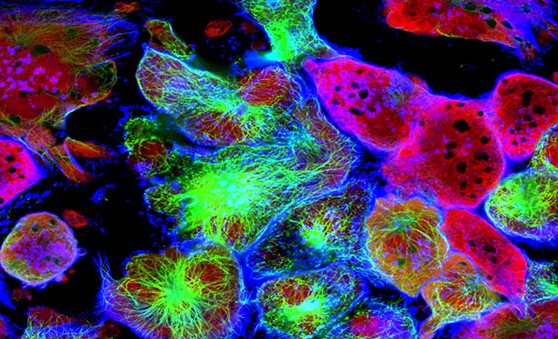 FUKUSHIMA PATIENT-DERIVED ORGANOIDS MADE AVAILABLE WORLDWIDE Hirosumi Tamura and Gen Hiyama (Fukushima Medical University) believe theyve found the sweet spot between patient-derived cell lines and xenograft models. Frustrated with the standard methods for making cell lines, the team developed protocols for culturing organoids a model system that closely resembles clinical tissue and can be grown in culture.
Wanting to make their organoids available to as many researchers as possible, they joined up with CancerTools.org, which is now storing and preparing to produce 46 of groups organoid lines. |
|
|---|
| 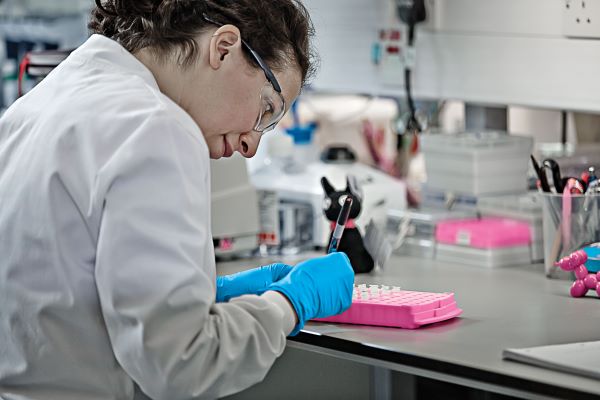 BRING YOUR CANCER RESEARCH UK-FUNDED REAGENTS TO THE GLOBAL MARKET WITH CANCERTOOLS.ORG Have you developed a cancer research tool that could be useful to the wider researcher community? Or have you recently read about a new reagent that could help with your research?
CancerTools.org is a collaborative that identifies useful cancer research reagents and makes them widely and easily available to researchers. Any reagents remain the intellectual property of their developers.
Explore the reagents and tools available through CancerTools.org and help accelerate cancer research discoveries worldwide. |
|
|---|
|
|---|
|
|
TAKE THE FIRST STEP TO CREATE YOUR DATA-DRIVEN STARTUP The University of Edinburghs Venture Builder Incubator, run in partnership with Cancer Research Horizons, will help you test your data-driven idea, give you access to a share of over 65k and support you in the creation of a startup.
The curated programme includes interactive workshops and events, one-to-one support and links to investors to provide PhDs, postgrads, early career researchers and academic staff with the skills and knowledge to solve real world challenges and maximise the impact of their research.
Apply by 5 June to receive feedback on your application and have the chance to resubmit.
|
|
|---|
|
|---|
|
|
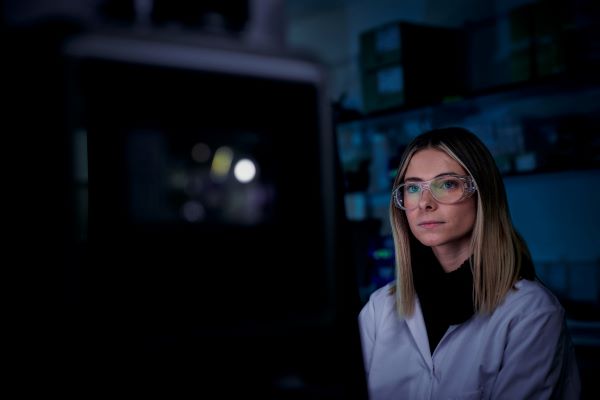 INCREASE THE COMMERCIAL POTENTIAL OF YOUR CANCER RESEARCH DATA With our Data Innovation Award, you can receive up to 75k funding to enhance the commercial potential of your Cancer Research UK-funded research project data.
Apply now to access funding and support to harness and organise your data, which will increase its impact and make it more accessible for commercial and academic third parties. |
|
|---|
| 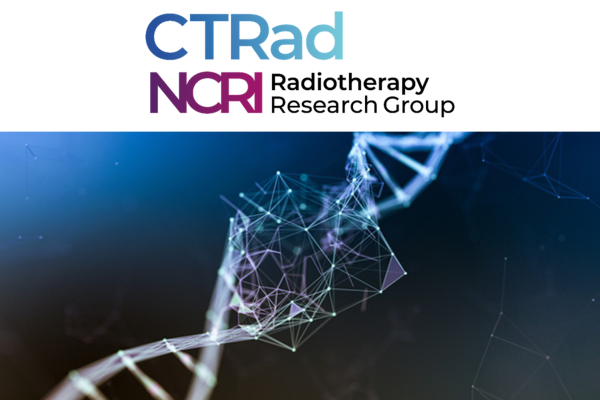 JOIN THE DISCUSSION TO INFORM GUIDELINES IN THE TRANSLATIONAL RESEARCH FIELD Ahead of our radiation research conference in Glasgow, a working group set up by NCRI CTRad is running an interactive workshop to improve translational research in radiation oncology.
The event will focus on translating novel discoveries to and from the clinic and youre invited to discuss the current opportunities and gaps in this field with an expert panel.
Join on 4 June at 10am BST and have a chance to shape future guidelines in translational research. |
|
|---|
|
|---|
|
|
PRECISION MEDICINE FOR CHILDREN AND YOUNG PEOPLE WITH CANCER Do you want to find out how precision medicine can help diagnose and treat cancer in children and young people?
Join the conversation in our webinar on 5 July and hear insight from David O'Connor (Great Ormond Street Hospital and UCL Cancer Institute), Rob Pieters (Prinses Mxima Centre) and Marilyn Li (Children's Hospital of Philadelphia) on using data, tools and techniques to explore how these cancers develop. |
|
|---|
|
|---|
|
|
| | | Online 10:00 AM 31 May 2023 |
|
|---|
|
|---|
| | | Glasgow, UK 10:00 AM 04 June 2023 |
|
|---|
|
|---|
| | | Online 1:00 PM 20 June 2023 |
|
|---|
|
|---|
| | | Online 4:00 PM 05 July 2023 |
|
|---|
|
|---|
| | | Online 4:00 PM 27 September 2023 |
|
|---|
|
|---|
| | | Paris, France 04 October 2023 |
|
|---|
|
|---|
| | | London, UK 10 October 2023 |
|
|---|
|
|---|
| | | London, UK 14 November 2023 |
|
|---|
|
|---|
|
|
WHAT DID YOU THINK OF THIS EMAIL? We're always looking for ways to improve. Please give us your feedback by clicking below and leaving a comment. |
|
|---|
|
|---|
|
|
| Been forwarded this email?
Subscribe to our newsletter to stay up-to-date. |
|---|
| |
|---|
|
|
|